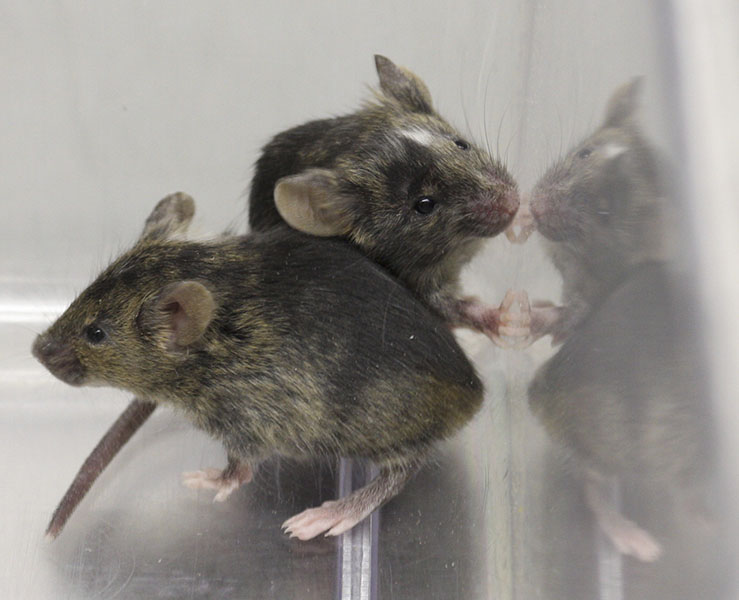 The Tulane Transgenic Core Facility can create genetically modified mice by injection of gene-targeted embryonic mouse stem cells into mouse blastocysts. The "loss-of-function" approach to studying gene function in mice has been very successful in recent years. The most commonly used and most informative "loss-of-function" approach is to study the consequence of eliminating a gene in the mouse. This technique, termed gene "knockout", has been well established in the mouse. Analysis of the "knockout" mouse phenotype can allow us to deduce the function of this gene in a biological process. In addition, it offers a genetic toll or model to study complex genetic pathways during development or disease processes.
The Tulane Transgenic Core Facility can create genetically modified mice by injection of gene-targeted embryonic mouse stem cells into mouse blastocysts. The "loss-of-function" approach to studying gene function in mice has been very successful in recent years. The most commonly used and most informative "loss-of-function" approach is to study the consequence of eliminating a gene in the mouse. This technique, termed gene "knockout", has been well established in the mouse. Analysis of the "knockout" mouse phenotype can allow us to deduce the function of this gene in a biological process. In addition, it offers a genetic toll or model to study complex genetic pathways during development or disease processes.
The most crucial step in creating a knockout mouse is the preparation of the knockout embryonic stem (ES) cell line. This process utilizes homologous recombination to target and replace the endogenous gene with a modified nonfunctional copy. These targeted ES cells are injected into the blastocysts of donor mice. The injected blastocysts are then transferred to the uterus of a foster mouse. The injected ES cells co-mingle with the ES cells of the inner cell mass of the donor blastocyst. Thus the resulting pup is chimeric, with both the injected and donor cells contributing to the structure of the mouse. Chimeric mice are easily identified by coat color, as the chimeric mouse will have bands of fur displaying the colors of the background donor and ES cells. Please contact Ann Mullin with questions regarding ES cell injections.
Investigators must supply the following items:
- Targeted ES cells cultures that have been tested for mycoplasmas and found clear
- Current protocol number for the chimeric pups
- IT or PO for payment
- Service Request Form
General Timeline:
- ES cells delivered on day of injection session
- Eggs injected for 2 sessions
- Foster mice give birth (investigator notified)
- Chimeric pups are reported when coats come in
- Pups are weaned at 21 days and chimeric pups are released to the investigator
- The entire process normally takes 7-8 weeks
Special notes
The facility guarantees the production of 3 chimeric mice per cell line, however there is no guarantee that the chimeric pups are capable of germline transmission.
The facility routinely uses C57BL/6J mice as the blastocyst strain. Investigators who need to use a different strain will cover the cost of the male mice and any additional cost for the female mice required for the procedure and pay the per diem charges for these animals.
If arrangements for delivery of the chimeric pups is delayed past weaning (21 days), the investigator must pay the per diem charges for the pups.
The investigator must inform the facility if the ES cells are expected to produce severe defects or lethality, so that the pups can be properly monitored.
If your facility requires specific health tests before they will accept the transgenic pups, the investigator will pay for the cost of testing, including any shipping charges.
Investigators are responsible for charges to ship animals to their institution.
Please send an e-mail to Ann Mullin to confirm pricing information. Investigators outside the Tulane University system must be at an institution based in Louisiana and pay an additional charge.
